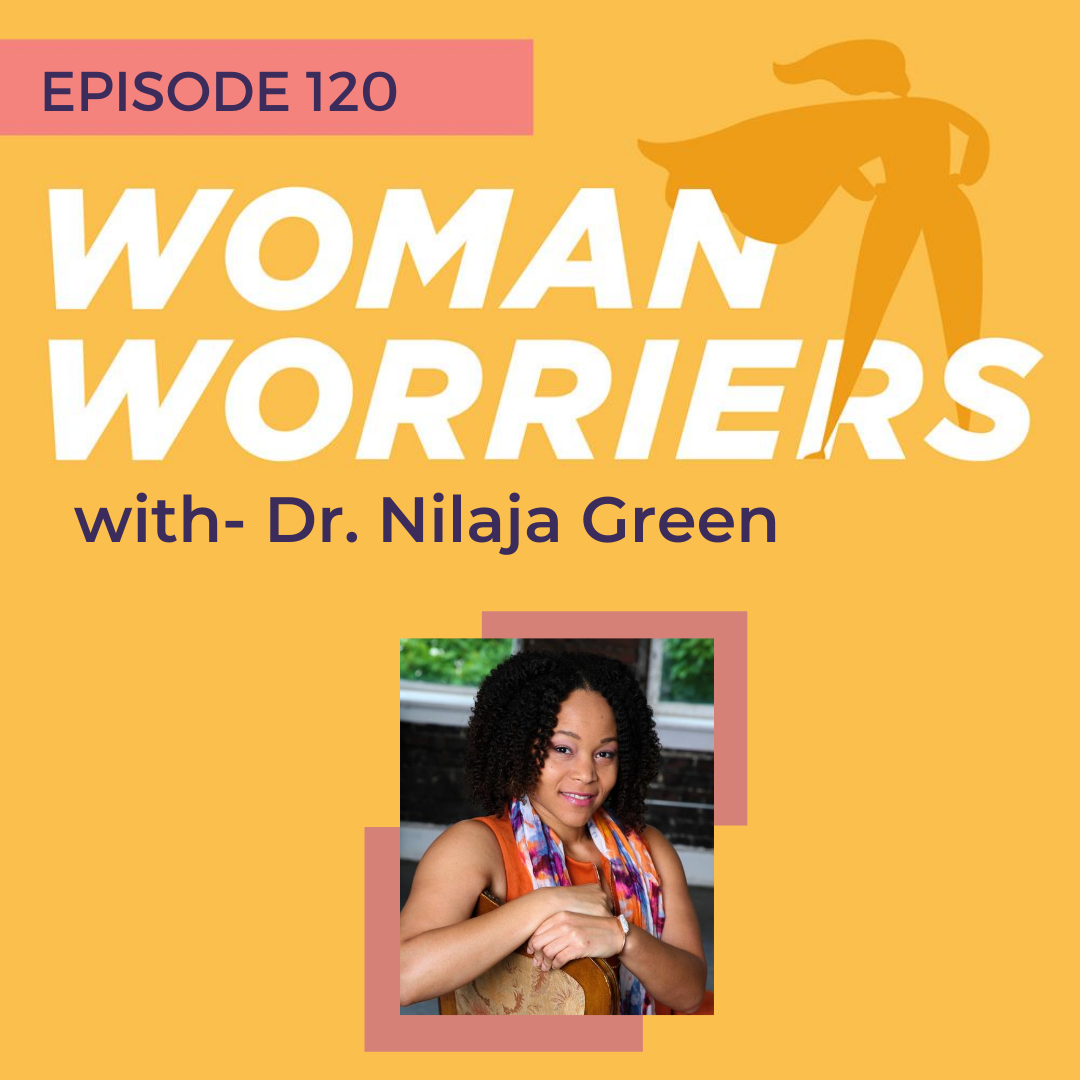Subscribe!
The Strong Black Woman: Identity and Coping Mechanism
How does cultural experience affect mental health? In this episode of Woman Worriers host Elizabeth Cush interviews Dr. Nilaja Green about how the Strong Black Woman identity can be both protective and problematic.
“Part of what the stripping away of freedom meant was also the loss of control over the very basic aspects of life that most of us take for granted.”
Show Notes:
Sometimes strength is not an advantage. The qualities we develop to protect ourselves can sometimes cause us problems. In this episode of the Woman Worriers podcast, host Elizabeth Cush, LCPC, of Progression Counseling in Annapolis, Md., welcomes B. Nilaja Green, PhD, an Atlanta-based psychologist who provides specialized trauma treatment to vulnerable populations including people of color and members of the LGBTQ community. They talk about the paradigm of the Strong Black Woman as a coping mechanism—how it arose and why it’s necessary, why it’s effective and how elements of it can negatively affect mental health, sometimes leading to depression and suicidality. They also discuss the issues that can block some Black women from getting into therapy and finding the support that could help them find relief from distress and how to access resources that feel right.
Listen and learn:
How the idea of Strong Black Woman developed over generations, from West Africa to the so-called New World
The core characteristics of the Strong Black Woman paradigm
The impact of the loss of control that Black women experienced as a result of the Maafa, or Middle Passage
How independence turns to self-reliance and how that self-reliance can stand in the way of getting relief
The connection between communal responsibility and caretaking and how enslavement twisted the role
How caretaking became traumatic for some Black women
Why Black women had to learn to hide their feelings—and the fallout that some experience from that today
The role of pride, how it can get in the way of getting the help
How the Strong Black Women sometimes shows up in therapy—and why therapists need to be aware of it
How looking through a lens of trauma might help therapists who work with women of color and other oppressed groups
Why many Black women may be reluctant to turn to therapists for help
The one factor that seems to have the strongest relationship with depression and suicidality
When looking fabulous isn’t a good sign
Where Black women can access resources for therapy and how they can find a therapist who might be a good fit
How women of color—and anyone else—can get the most out of therapy
Learn More:
> Standpoint Therapy website
> Dr. B. Nilaja Green on Instagram
> “Strong Like My Mama: The Legacy of ‘Strength,’ Depression, and Suicidality in African American Women” by B. Nilaja Green, PhD, in Women & Therapy
> Request Dr. Nilaja Green’s “Strong Black Women” packet
> Open Path Psychology Collective
> Woman Worriers on Instagram, Pinterest, Facebook & Twitter
Subscribe
You can tune in and subscribe to auto-download new podcast episodes to your Apple or Google Play or Spotify. After you listen to a few episodes, please consider leaving an honest rating and review in iTunes and let me know how you think this podcast might benefit women.
You can follow the podcast on Twitter, Facebook , Instagram, and the Woman Worriers homepage.


